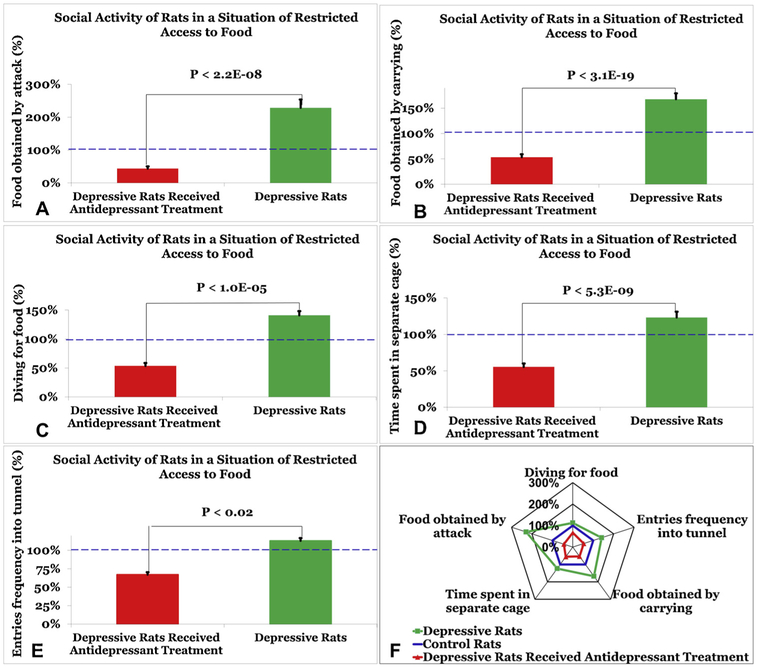Fig. 3.
Social organization test. Results on the complex diving for food situation in the following performance parameters: food obtained by attack (A), food obtained by carrying (B), diving for food (C), time spent in separate cages (D), and frequency of entries into the tunnel (E), in control rats (blue), depressed rats (green) and depressed rats that received antidepressant treatment (red). A Radar chart (F) illustrates the performance of all three groups on each of the 5 parameters. Depressed rats were significantly more active and aggressive than control rats in 4 of 5 parameters evaluated by the social organization test (p < 0.05). Depressed rats that received antidepressant treatment demonstrated social behavior like the control group, but were less active and less aggressive than the control group (p < 0.05). The differences between the depression group and antidepressant treatment group were statistically greater than the differences between the depression group and control group in all 5 parameters of the test (p < 0.05). Data is presented an average percentage ± standard error of the mean.

